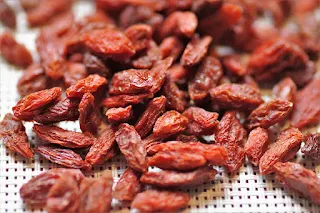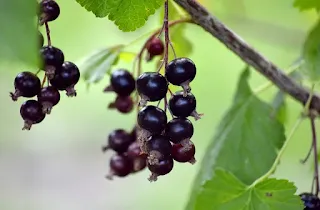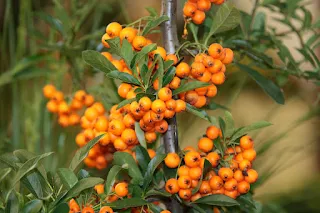Superfruits Unveiled: Top 10 Fruits You Didn't Know Could Boost Your Immune System
We all know the classic immune system superstars: oranges overflowing with vitamin C, and tart yogurt packed with probiotics. But the world of immune-boosting fruits extends far beyond the supermarket staples.
This list dives into ten exciting "superfruits" you might not have considered, each offering a unique blend of vitamins, antioxidants, and other immune-supportive nutrients.
1. Acerola (Barbados Cherry):
This vibrant red berry, native to the Caribbean and Central America, packs a whopping dose of vitamin C – up to 80 times more than an orange! Vitamin C is crucial for white blood cell production, which is our body's first line of defense against invaders.
Acerola is also rich in anthocyanins, antioxidants that fight inflammation and may reduce the risk of chronic diseases.
2. Kiwi:
Often overshadowed by its citrus counterparts, the humble kiwi is a powerhouse of vitamin C and immune-supportive nutrients. One kiwi provides over 100% of your daily recommended vitamin C intake.
Kiwis are also rich in antioxidants like vitamin E and lutein, which protect cells from damage and may reduce the risk of infections.
3. Papaya:
This tropical treat is more than just delicious. Papaya is a fantastic source of vitamins A and C, both vital for a healthy immune system. Vitamin A plays a crucial role in maintaining healthy mucous membranes, which act as a barrier against pathogens.
Papaya also contains papain, an enzyme with anti-inflammatory properties that can aid in recovery from illness.
4. Pomegranate:
This jewel-toned fruit boasts a wealth of immune-supportive benefits. Pomegranate is high in antioxidants like punicalagins, which have been shown to reduce inflammation and potentially boost white blood cell activity.
The juice of this fruit may also help shorten the duration of cold and flu symptoms.
5. Elderberry:
A traditional remedy used for centuries, elderberries are making a comeback for their immune-boosting potential. Elderberries are rich in anthocyanins, which may help prevent viruses from attaching to healthy cells.
Studies suggest elderberry supplements may reduce the duration and severity of colds and flu.
6. Guava:
Don't underestimate this tropical gem! Guava is not only bursting with vitamin C, but also offers a good dose of vitamin A and folate.
Folate is essential for healthy cell division and repair, which is crucial for immune function. Guava is also a good source of fiber, which helps maintain a healthy gut microbiome, an important factor in overall immune health.
7. Mango:
This sunshine-colored fruit is a delicious source of vitamin C and vitamin A. Mango also boasts prebiotics, which feed the good bacteria in your gut. A healthy gut microbiome is linked to a strong immune system, as it helps regulate inflammation and protects against harmful pathogens.
8. Goji Berries:
These tiny red berries have gained popularity for their purported health benefits. Goji berries are a good source of antioxidants like vitamin C and lycopene, which may help protect cells from damage and boost the immune system.
While research is ongoing, some studies suggest goji berries may shorten the duration of colds.
9. Black Currants:
These dark, tart berries are packed with antioxidants like anthocyanins and vitamin C. Black currants have been shown to reduce inflammation and may help shorten the duration of colds and flu.
10. Sea Buckthorn:
This lesser-known fruit is a treasure trove of vitamins, minerals, and antioxidants. Sea buckthorn is particularly rich in vitamin C, carotenoids (precursors to vitamin A), and vitamin E.
These nutrients all play a role in immune function and may help protect against infections.
FOR YOU : PEACH, PASSIONFRUIT, PAPAYA
Beyond the Bite: Optimizing Your Immune System
While these superfruits are packed with immune-boosting nutrients, they are not magic bullets. A healthy immune system relies on a well-rounded diet, including plenty of fruits, vegetables, whole grains, and lean protein.
Here's how you can create a holistic approach to immune health:
- Sleep: Aim for 7-8 hours of quality sleep each night. Sleep deprivation can weaken your immune system's ability to fight off illness.
- Stress Management: Chronic stress can suppress immune function. Practice stress-reduction techniques like yoga, meditation, or deep breathing exercises.
- Hydration: Drinking plenty of water flushes toxins from your body and helps maintain proper functioning of all bodily systems, including the immune system.
- Exercise: Regular moderate exercise can boost your immune system and improve circulation, which helps deliver immune cells throughout your body.
- Hygiene: Washing your hands frequently with soap and water is one of the most effective ways to prevent the spread of germs and illness.
Nature's Candy: Delicious Ways to Enjoy Superfruits
Superfruits can be enjoyed in a variety of ways, making it easy to incorporate them into your daily routine.
Here are some ideas to get you started:
- Fresh Fruit: Enjoy these fruits on their own as a healthy snack or add them to yogurt, oatmeal, or cereal for a burst of flavor and nutrients.
- Smoothies: Blend your favorite superfruits with other fruits, vegetables, and milk or yogurt for a delicious and refreshing smoothie.
- Salads: Add chopped superfruits like kiwis, mangoes, or black currants to salads for a sweet and tangy twist.
- Baking: Use pureed superfruits like papaya or mango to add moisture and flavor to muffins, cakes, or breads.
- Juices: Freshly squeezed juices or store-bought options with minimal added sugar can be a convenient way to get a quick dose of superfruit nutrients. However, be mindful that juicing can remove some of the fiber content.
A Word of Caution
While most superfruits are safe for healthy adults to consume in moderation, it's important to be aware of potential interactions with medications or underlying health conditions.
Here are some things to keep in mind:
- Allergies: If you have any allergies to fruits, be sure to research the specific superfruit before consuming it.
- Blood Thinners: Some superfruits, like cranberries, may interact with blood thinners. Consult with your doctor before consuming large quantities if you're on blood thinners.
- Digestive Issues: Certain superfruits, like goji berries, may cause digestive discomfort in some individuals. Start with a small amount and increase gradually if tolerated.
Embrace the Rainbow
Remember, the best approach to immune health is to consume a variety of colorful fruits and vegetables. Don't limit yourself to just these ten superfruits.
Explore the vibrant world of produce and discover new favorites that can contribute to your overall well-being. By incorporating a rainbow of fruits and vegetables into your diet, you'll ensure you're getting a wide range of vitamins, minerals, antioxidants, and other immune-supportive nutrients.
With a little creativity and these helpful tips, you can easily add these immune-boosting superfruits to your diet and support your body's natural defenses. So, stock up on these nature's gems and embark on a journey towards a healthier, more resilient you!
Disclaimer: This blog post is for informational purposes only and is not intended to be a substitute for professional medical advice. Always consult with your doctor before making any changes to your diet or lifestyle.
NOTE : "Information provided by Gemini, a large language model from Google AI."
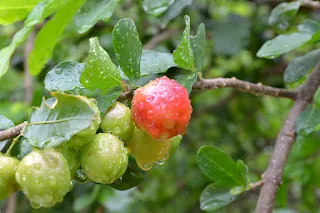

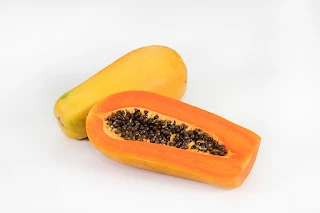
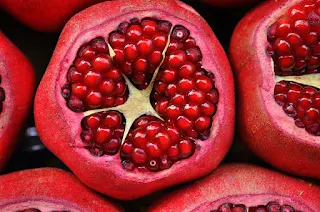
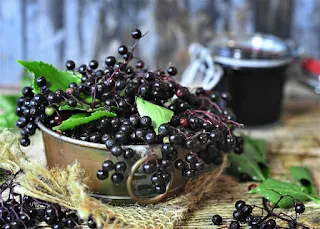

.jpg)
